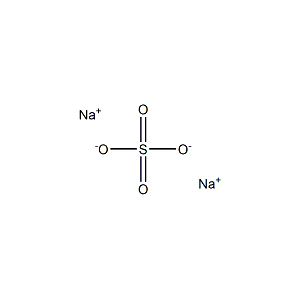High-Purity Sodium Sulfate from Aure Chemical – Your Trusted Source
Aure Chemical is a premier global supplier of high-quality Sodium Sulfate (Na₂SO₄), a widely occurring and versatile inorganic salt. With the CAS number 7757-82-6, it is commonly known as Salt Cake in its anhydrous form or Glauber's Salt when referring to its decahydrate form. Sodium Sulfate is a white crystalline solid, highly soluble in water, and plays a crucial role across numerous industrial sectors, including detergents, pulp and paper manufacturing, glass production, and textile dyeing. Aure Chemical's commitment to excellence ensures that our Sodium Sulfate meets the stringent purity and performance requirements for your most demanding applications, guaranteeing consistency and reliability.
Basic Information of Sodium Sulfate
Sodium Sulfate (CAS No. 7757-82-6) is meticulously produced and rigorously tested to meet stringent quality standards. We ensure exceptional purity and consistent performance, essential for your operations:
| CAS No.: | 7757-82-6 |
|---|
| EC No.: | 231-820-9 |
|---|
| Linear Formula: | Na₂SO₄ |
|---|
| Molecular Weight: | 142.04214 |
|---|
| Appearance: | White crystalline solid. |
|---|
| Melting point: | 884 °C (lit.) |
|---|
| Density: | 2.68 g/mL at 25 °C (lit.) |
|---|
| Solubility: | Highly soluble in water. Insoluble in ethanol. |
|---|
| Nature: | Stable, non-toxic, non-flammable. |
|---|
| Chemical Structure: |  |
|---|
Our commitment to delivering high-purity Sodium Sulfate ensures a reliable and efficient component for your critical processes.
Primary Applications of Sodium Sulfate
Sodium Sulfate's inertness, high solubility, and ability to act as a filler or processing aid make it an incredibly valuable and widely used compound with applications across numerous industries:
Detergents and Cleaning Products:
It is predominantly used as a filler in powdered laundry detergents, where it helps standardize the density of the detergent powder and allows for better flow properties. It is also used in other cleaning formulations.
Pulp and Paper Industry:
In the pulp and paper industry, particularly in the Kraft process (sulfate process) for making paper from wood, Sodium Sulfate is used as a makeup chemical to produce the pulping liquor. It helps to dissolve lignin, separating cellulose fibers.
Glass Manufacturing:
Sodium Sulfate is an important fining agent in glass manufacturing. It helps to remove small air bubbles from molten glass, leading to clearer and higher-quality glass products, and also acts as a flux.
Textile Industry:
In the textile industry, it is used as a leveling agent in dyeing to ensure even dye penetration and prevent "specking" or uneven coloration. It also helps to control the exhaustion rate of dyes.
Chemical Intermediate:
It serves as a raw material for the production of various other sodium compounds, such as sodium sulfide and sodium thiosulfate.
Pharmaceutical and Health Products:
As Glauber's Salt, the decahydrate form is known for its laxative properties and is used in certain pharmaceutical preparations.
Other Applications:
Minor uses include applications in animal feed, carpet deodorizers, and as a dehydrating agent in some chemical processes.
Why Choose Aure Chemical for Your Sodium Sulfate Supply?
Aure Chemical is dedicated to providing superior chemical solutions and unparalleled customer support. By partnering with us for your Sodium Sulfate requirements, you benefit from:
Exceptional Purity & Consistency: Our Sodium Sulfate is manufactured to stringent purity specifications, crucial for maximizing efficiency in detergent formulations, ensuring clarity in glass production, and achieving consistent results across all applications.
Reliable Global Supply Chain: We maintain a robust and efficient supply network, guaranteeing timely and secure delivery of this essential chemical to your facilities worldwide, adhering to all strict safety and regulatory standards.
Expert Technical Support: Our team of experienced chemists and specialists is readily available to offer comprehensive guidance on product application, safe handling procedures, and optimal storage conditions for Sodium Sulfate.
Commitment to Quality & Safety: We adhere to the highest industry standards for quality management, safety, and environmental responsibility across all our operations, ensuring peace of mind for our clients.
Choose Aure Chemical for a trustworthy and dependable supply of high-quality Sodium Sulfate. We're ready to support your most demanding and innovative industrial processes.

